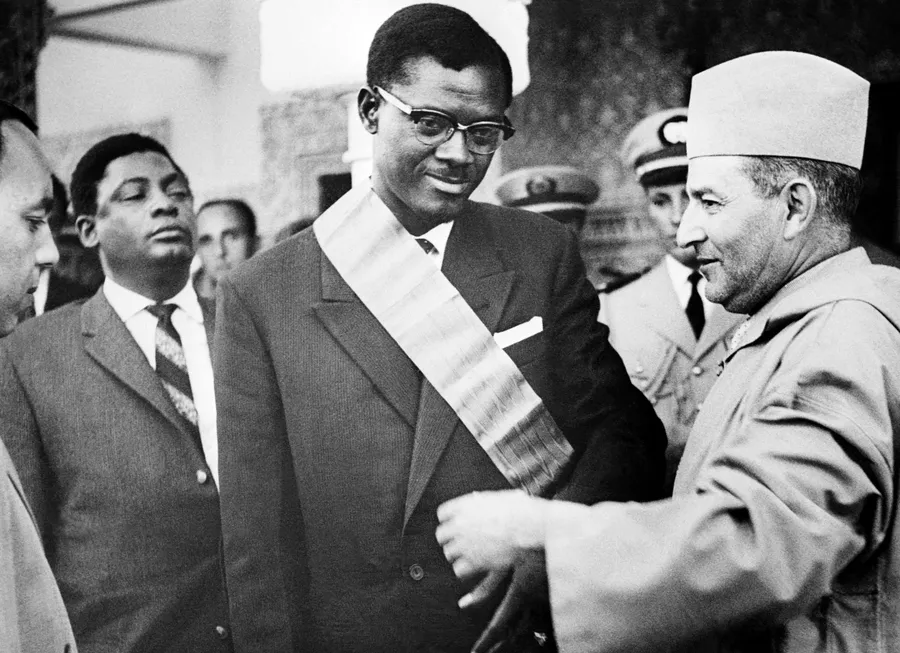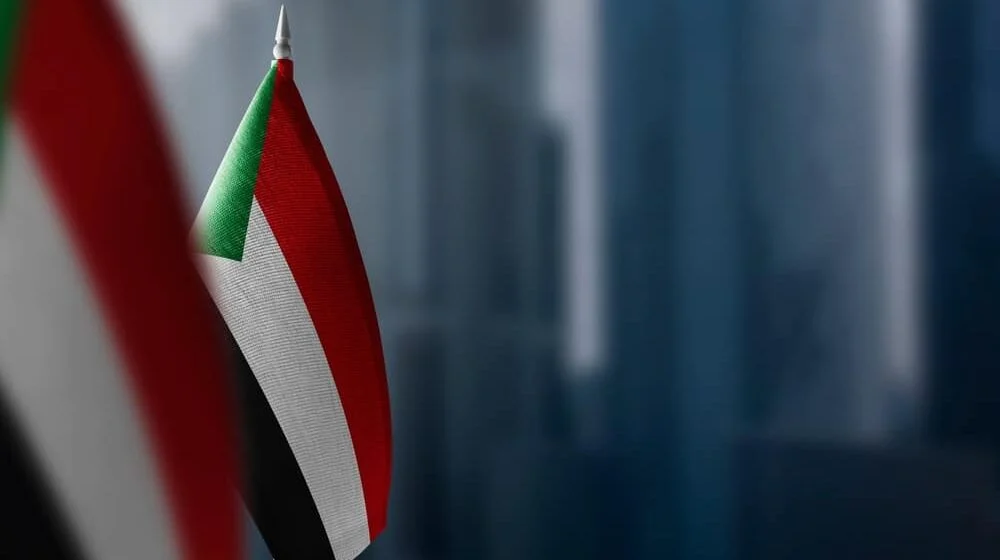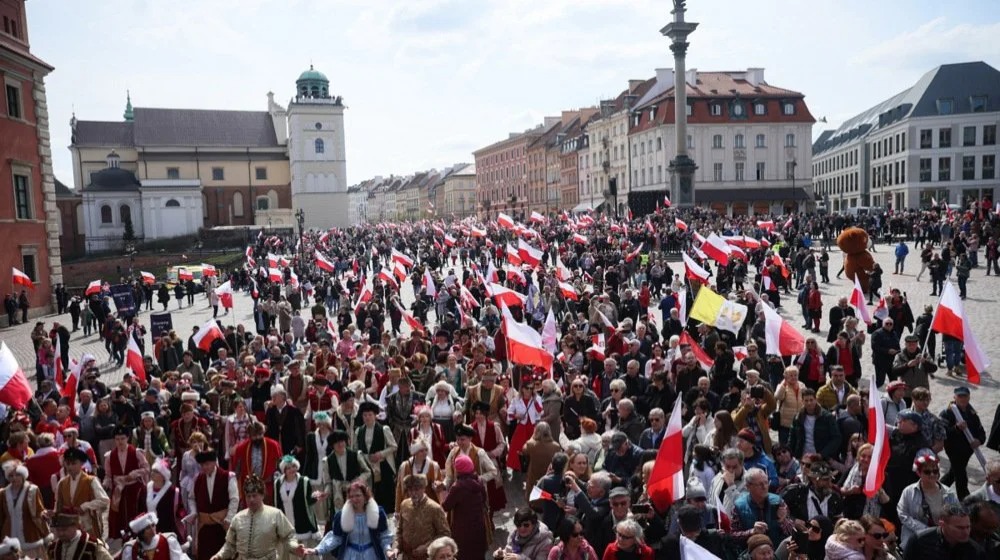
Who Killed Patrice Lumumba?
On August 8, 1960, King Mohammed V of Morocco awarded the Grand Cordon of the Order of the Throne to Congolese Prime Minister Patrice Lumumba during his official visit to Morocco.
Patrice Lumumba, born on this day one hundred years ago, was the first democratically elected Prime Minister of the Republic of Congo, a politician, and a national hero. He was also a father: his children are still fighting to shed light on his assassination.
Juliana Lumumba has been haunted for more than 60 years by questions about who killed her father, how the Americans helped in the assassination, and what the United Nations did. Did they just stand by and watch, even though he was under their protection? These are uncomfortable political questions. And Juliana will not rest until she gets answers, writes Deutsche Welle.
“You can't be Patrice Lumumba’s daughter and not have that define your life,” she says. Her gaze is calm. She doesn't look at the camera but off to the side, her chin slightly raised. She looks out the window of her home in Kinshasa, the capital of the Democratic Republic of Congo.
On June 17 of this year, the murder of her father in 1961 was once again revisited in Brussels. It is clear that Belgium bears part of the responsibility: a parliamentary inquiry in 2001 found that then-King Baudouin of Belgium knew about the assassination plans and did nothing to stop them.
But that is not all. Juliana’s brother, François, a prosecutor, accuses the Belgian state not only of war crimes and torture but also of being part of a conspiracy aimed at the political and physical elimination of their father.
Lumumba Fought for Congo's Independence
Patrice Lumumba freed Congo from Belgian colonial rule on June 30, 1960, and became the country's first prime minister. He promised democracy, prosperity, and an end to foreign exploitation of natural resources. But that never happened.
The West – especially Belgium and the United States – did not like Lumumba's plans to nationalize Congo’s natural resources. And they certainly did not like his closeness to the Soviet Union during the Cold War.
On January 17, 1961, six months after Lumumba was elected as the first prime minister of free Congo, separatists brought him to the hostile Katanga province with Belgian and American approval. There, he and two of his close associates were executed on orders from Belgian officers. The details only came to light through investigations like those of Belgian sociologist Ludo De Witte in his book *The Assassination of Lumumba*.
Another Belgian officer, Gérard Soete, dismembered the bodies and dissolved them in acid. Only two of Lumumba’s teeth remained. Soete kept them as trophies. Juliana Lumumba learned of this on TV in a 2000 German ARD report in which Soete himself recounted the details and held up the teeth in front of the camera. A horrifying memory that still enrages Juliana.
“How would you feel if you were told your father was killed, buried, exhumed, chopped into pieces, and that parts of his body were taken,” she asks. “For many, he was Congo's first prime minister, a national hero. For me, he was my father.”
The coffin of the murdered Congolese independence hero Patrice Lumumba was returned to his native region on June 22, 2022, for an emotionally charged tour and funeral – more than six decades after his assassination. A plane carried Lumumba's remains.
Juliana Lumumba Fights for the Truth
Years later, Juliana wrote a letter to the Belgian king demanding the return of one of the teeth. No one knows where the second is. Soete claimed to have thrown the teeth into the North Sea. He died shortly thereafter. However, his daughter later showed a gold tooth to a journalist. Ludo De Witte sued her, and the Belgian authorities confiscated the tooth.
In 2022, then Belgian Prime Minister Alexander De Croo returned the tooth to Lumumba’s children during a ceremony in Brussels and apologized – unlike King Philippe, a direct descendant of King Baudouin, who apparently could not bring himself to apologize. He merely expressed his “deepest regret” for the violence inflicted on Congo under Belgian rule.
But for Juliana, the apology is not enough. “This is not about excuses. It's about the truth,” she says.
Children Raised in Exile
Juliana was only five years old when her father was killed. She learned about it while in exile in Egypt. A few months before Lumumba’s assassination, she and her siblings were smuggled out of their home in Congo – where their father was already under house arrest – and brought to Cairo using fake passports. Patrice Lumumba knew he was going to die, Juliana says. He wrote this in his final letter to his wife.
In Cairo, Lumumba’s children were raised by Mohamed Abdel Aziz Ishak, a diplomat friend, his wife, and their children. Juliana calls them Papa Abdel Aziz and Mama Zizi. She describes a wonderful childhood: “We grew up with a lot of love and empathy.”
Still, Lumumba's children could not escape their identity. “We are a political family. We came to Egypt for political reasons, to be guests of President Nasser. Politics is the core of our lives, whether we like it or not.” It's no wonder that the children also got involved in politics. Juliana held several ministerial posts, and her brother François leads the Congolese National Movement – the party their father founded.
Juliana always knew her father's assassination was political, even as a child. She learned that in Cairo from Mama Zizi, who first told her eldest son François, and then the rest of the children. Mama Zizi and Papa Abdel Aziz were also the ones who taught the Lumumba children about their family story.
Guilt, Acknowledgment, and Colonial Continuity
It wasn’t until 1994, when Mobutu's dictatorship was on the brink of collapse, that Juliana returned to Congo. Their father had instructed his children: “He told us, ‘No matter what happens, you must return home.’ When it became safe again for us, we returned to the home where we belong.”
Today, Juliana is less active in Congolese politics. She doesn’t want to comment on the current situation in Congo, the conflict between the Congolese army and the M23 rebel militia, or the ongoing exploitation of natural resources by Western powers, China, Rwanda, and others. Nor does she want to speak about the trial in Brussels, which is still ongoing. She only says this: “Nothing has happened in the last ten years. Eleven out of twelve accused have died.”
The inaction of the Belgian judiciary speaks for itself, Juliana believes, as reported by Deutsche Welle. She has little hope that anyone will ever be held accountable for her father’s murder. The last living defendant is over 90 years old.
For Juliana, it is a painful and frustrating experience: “No one has been held accountable. No Belgian, no European, no one from Congo. No white person, no black person. Everyone agrees it was a murder. But no one wants to admit they committed the murder.”
Today, July 2, 2025, Patrice Lumumba would have turned one hundred years old.





